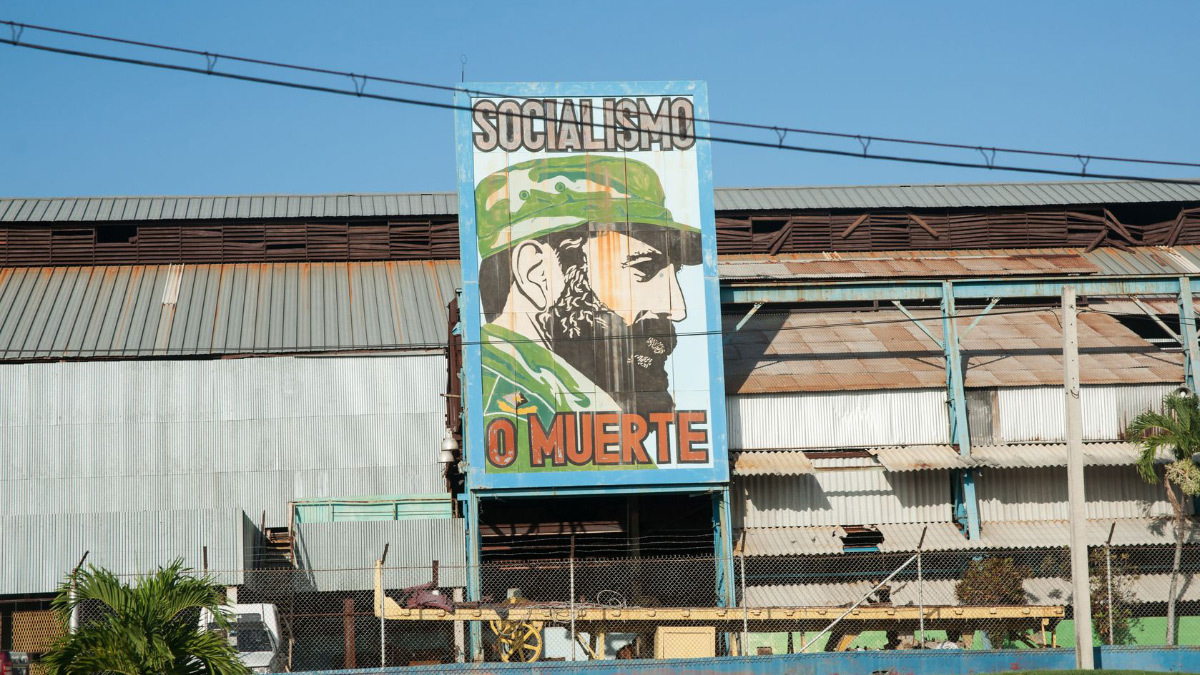Sixty years ago tomorrow, Fidel Castro, Che Guevara, and others emerged victorious in the Cuban Revolution when Cuban President Fulgencio Batista fled the country. In this article for the American Institute for Economic Research, the economic historian Vincent Geloso--with whom I have collaborated on an unrelated research project that I summarize here--tries and measures Cuba’s economic record and finds it...wanting, or at least inconsistent with romantic visions of revolutionaries liberating the people and working toward a workers’ paradise in the Caribbean.
Here I would like to consider the broader framework—socialism—in which Castro, Guevara, and their fellow revolutionaries operated. A few years ago, the philosophers James Otteson and Jason Brennan completed the critique of the socialist program by dismantling its status as a moral ideal. They were responding directly to the philosopher G.A. Cohen, who wrote a very short book titled Why Not Socialism? in which he used a camping trip as a thought experiment that defended the supposed moral superiority of socialism (I reviewed the book for the Foundation for Economic Education shortly after it was published). We wouldn’t like it if all our interactions on a camping trip were price-mediated and narrowly self-interested; therefore, we should prefer socialism to capitalism even if socialism is impractical. Cohen argues that the free market is “a casino from which it is difficult to escape.” It’s a strange claim given that the places people are trying to escape--and that are difficult to escape--are those that have largely rejected free markets.
Castro’s defenders will note his successes in delivering health care and education and in raising Cuban literacy rates. Assume for the sake of argument that this is true: even then, many people were desperate to escape his workers’ paradise. The rickety boat traffic went from Cuba to Miami, not the other way around. Western intellectuals could praise Castro’s system to the heavens, but through their actions, the people who actually had to live under his regime revealed a preference for free markets. If we’re interested in autonomy for everyday people, we should take their actions seriously--and they are voting with their lives, fortunes, and sacred honor against socialism.
Cohen calls the market is “a casino from which it is difficult to escape.” I’ve been to Las Vegas several times (and loved it). Never have I been forced at gunpoint into the high-limit slots room or chained to a roulette wheel. Casinos are famously designed so that they are difficult to navigate, but I’ve never been stopped at an exit and told to report to the nearest craps table. “A casino from which it is difficult to escape” better describes the workers’ paradises from which people are so desperately trying to escape.
Cohen’s “camping trip” thought experiment is unintentionally unfortunate. As I’ve noted, the “camping trips” that happened under actually-existing socialist regimes resembled the trips chronicled by Alexandr Solzhenitsyn in The Gulag Archipelago far more than they resemble a few days at the lake with friends and family.
It’s easy to wax rhapsodic and romantic about revolution—to take up the cause of the oppressed, and to imagine that a new world without property or poverty is possible. It has motivated intellectuals and revolutionaries for generations. I can imagine no possessions—it is easy if I try. It leads not to paradise but to perdition. What, I wonder, is singing an idealistic song “compared to tearing the lid off hell and letting men see it?” What was the experience with communism if not an answer?









